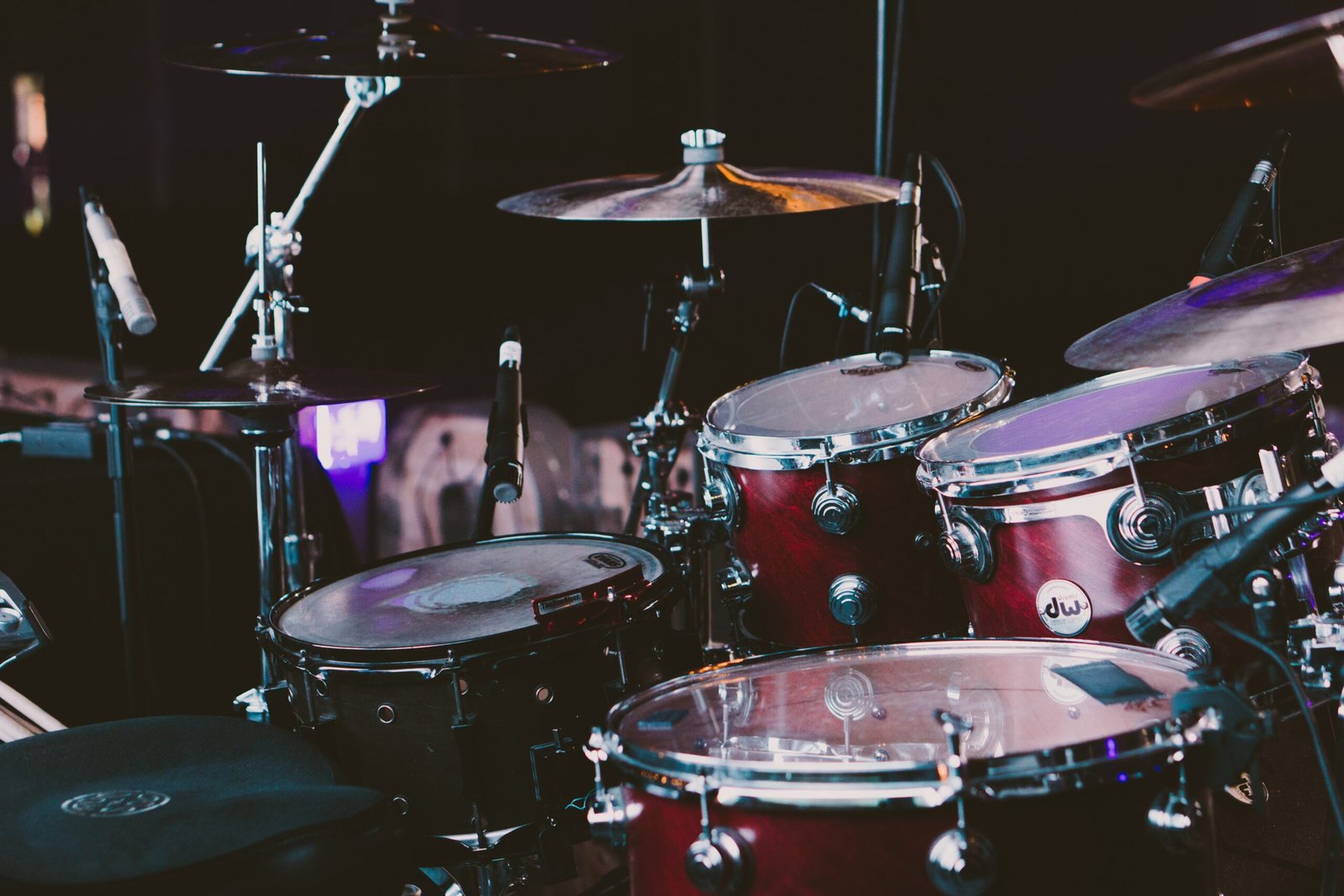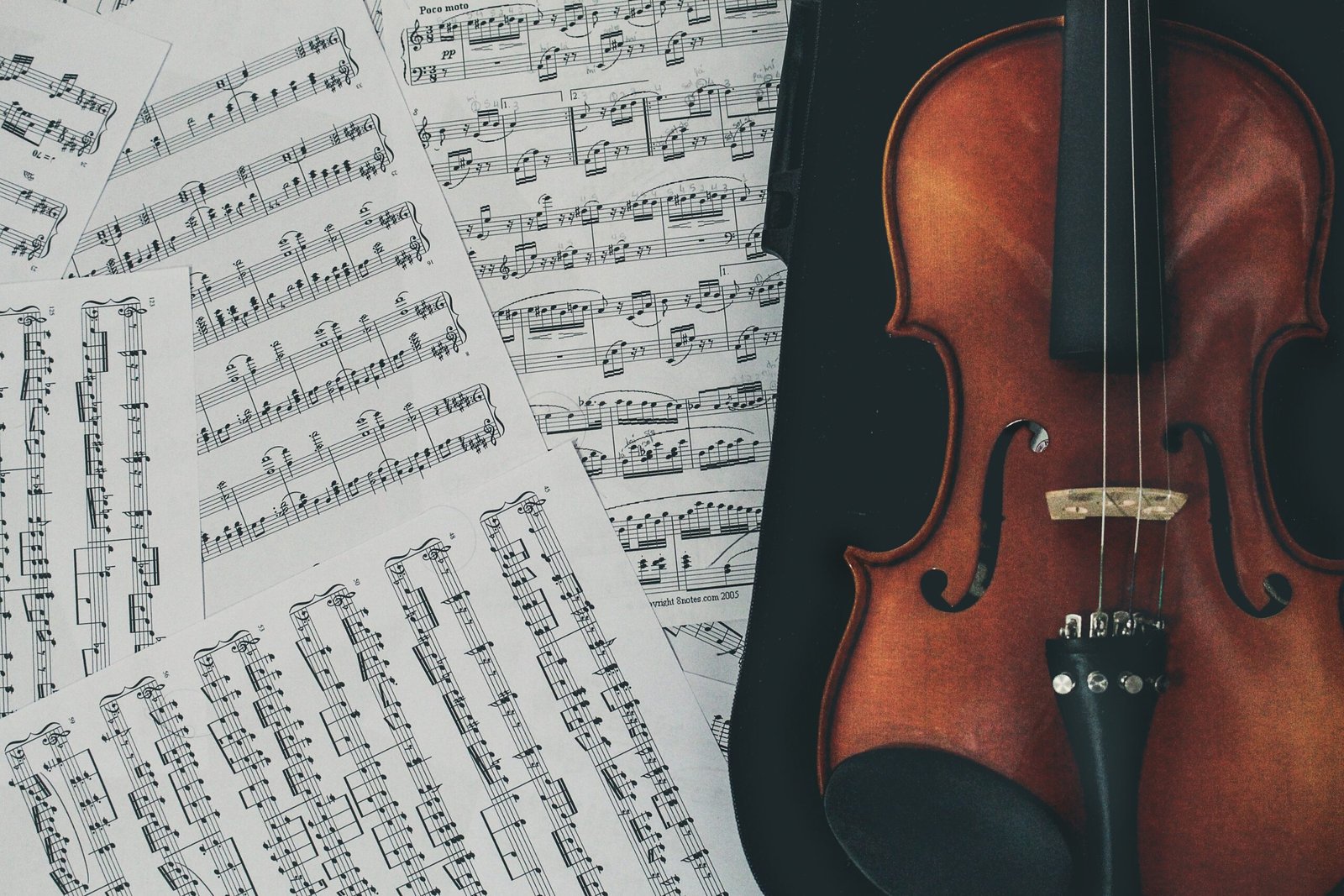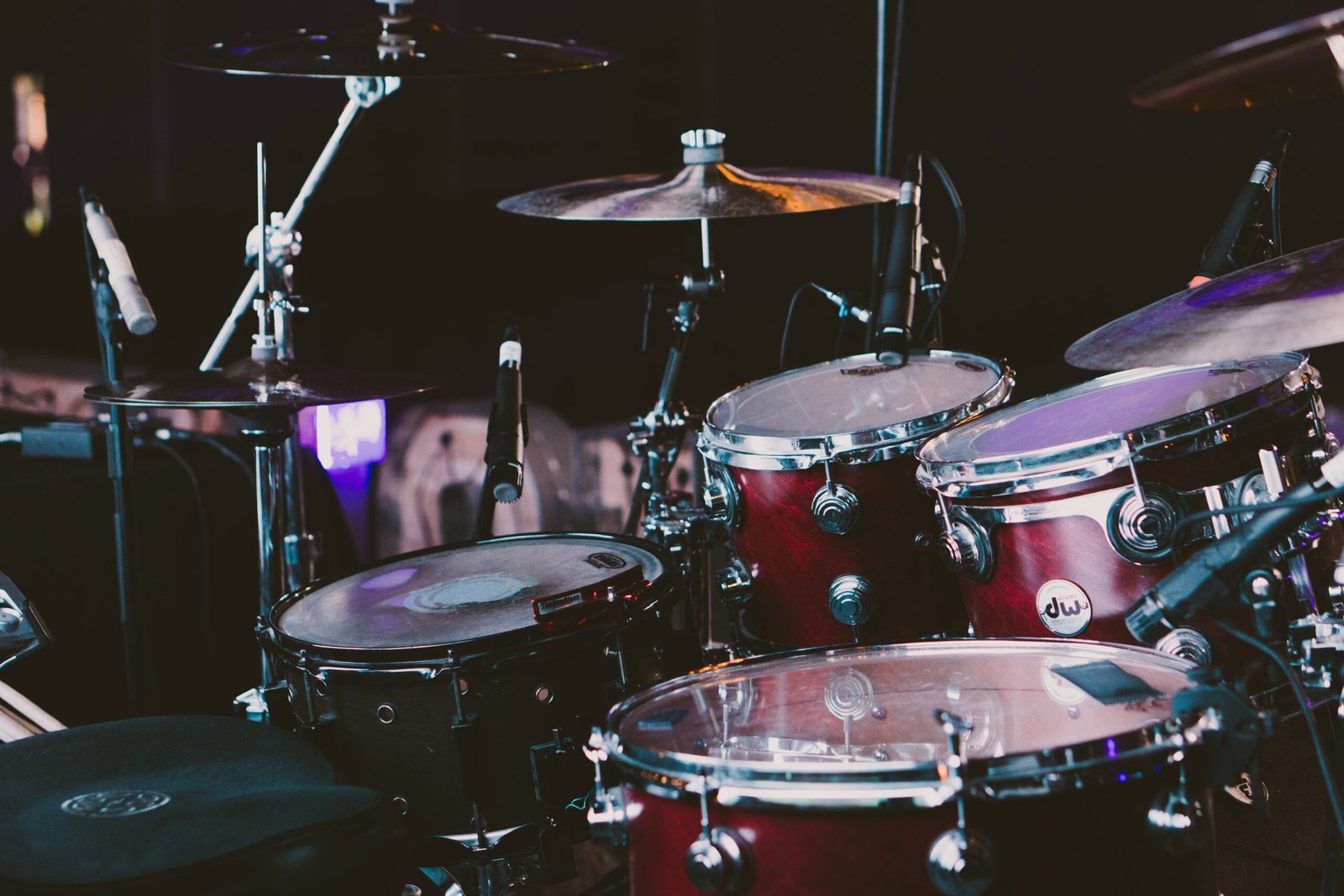Have you ever wondered if artificial intelligence (AI) has the capability to compose music? This question has intrigued music enthusiasts and technologists alike. With the rapid advancements in AI technology over the years, it is no longer a far-fetched idea. In this article, we will explore the fascinating world of AI and its potential to create beautiful melodies and harmonies that rival those composed by humans. Join us as we delve into the realm of AI-generated music and discover the possibilities that lie ahead.
Basics of AI Music Composition
Definition of AI music composition
AI music composition refers to the process of using artificial intelligence technology to create and compose music. AI systems are programmed with algorithms and trained on vast amounts of existing music to generate original compositions that mimic the style and characteristics of human-made music.
The role of AI in music composition
AI plays a significant role in music composition by providing tools and assistance for human composers, generating musical ideas, creating harmonies and melodies, and analyzing and adapting music styles. It has the potential to enhance the creative process and expand the possibilities of musical expression.
Types of AI used in music composition
There are various types of AI used in music composition, including machine learning techniques, neural networks, and generative models. Machine learning involves training AI models on existing music to learn patterns and structures. Neural networks are used for pattern recognition and generating new compositions. Generative models use algorithms to create unique musical pieces based on learned patterns.
AI as a Tool for Composition
Assisting human composers
AI acts as a valuable tool for human composers by providing suggestions and assisting in the composition process. It can help overcome creative blocks, offer alternative ideas, and facilitate experimentation with different musical elements. With AI, composers can explore new possibilities and push the boundaries of traditional composition techniques.
Generating musical ideas
One of the remarkable capabilities of AI in music composition is its ability to generate original musical ideas. By analyzing vast amounts of data and learning from existing compositions, AI systems can produce melodies, harmonies, rhythms, and even entire songs. This enables composers to tap into a vast pool of creativity and inspiration.
Creating harmonies and melodies
AI excels in creating harmonies and melodies that resonate with human emotions. It can generate complex chord progressions, experiment with harmonization techniques, and produce melodies that evoke certain moods or styles. AI’s ability to analyze and adapt various musical styles allows composers to explore different genres and create unique compositions.
Analyzing and adapting music styles
AI can analyze and adapt music styles by understanding and incorporating the characteristics of different genres, artists, or time periods. This allows composers to experiment with blending or fusing various styles, creating innovative and eclectic musical pieces. AI’s analytical capabilities help composers understand the nuances of different genres and broaden their artistic horizons.

This image is property of images.unsplash.com.
Machine Learning in Music Composition
Training AI models on existing music
Machine learning plays a vital role in AI music composition. AI models are trained on vast libraries of existing music, incorporating various genres, artists, and styles. By analyzing patterns and structures in this data, AI systems can learn the underlying principles of musical composition. This training provides a foundation for AI to generate original compositions that align with established musical conventions.
Using neural networks for pattern recognition
Neural networks are powerful tools in AI music composition, as they excel at pattern recognition. By analyzing input data, such as melodies, harmonies, and rhythms, neural networks can identify common patterns and structures. This enables AI to generate coherent and musically pleasing compositions that adhere to certain musical rules and expectations.
Generative models for composition
Generative models are an exciting area of AI music composition. These models use algorithms to create unique musical pieces by combining learned patterns and structures. Generative models can produce original compositions that go beyond replication or imitation, bringing new and innovative musical ideas to the fore. This opens up possibilities for exploring uncharted territories in music composition.
Understanding the Creative Process
Challenges in replicating human creativity
Replicating human creativity is a complex task for AI. While AI systems can generate impressive compositions based on learned patterns, they often lack the intuitive and emotional elements that human composers bring to their work. The spontaneity, improvisation, and personal experiences that shape human creativity are difficult to capture and reproduce artificially.
The limitations and boundaries of AI composition
Despite its capabilities, AI composition has certain limitations and boundaries. AI systems rely on existing data for training and are limited to what they have been exposed to. They may struggle to produce truly innovative or groundbreaking compositions that transcend existing musical conventions. Additionally, AI compositions may lack the inherent subjectivity and unique perspectives that human composers bring to their work.
The emotional aspect of music creation
Music evokes emotions, and the emotional aspect of music creation is a significant challenge for AI. While AI can analyze and replicate certain emotional aspects of existing music, it may struggle to genuinely convey or evoke emotions in the same way a human composer can. The subjective and personal nature of emotions in music remains an area where AI composition has limitations.

This image is property of images.unsplash.com.
The Impact of AI on the Music Industry
AI in music curation and recommendation
AI has made significant contributions to music curation and recommendation systems. By analyzing user preferences, listening habits, and music characteristics, AI algorithms can suggest personalized playlists, discover new artists, and tailor music recommendations to individual tastes. This enhances the listening experience for music enthusiasts and provides exposure to lesser-known artists.
Copyright and ownership implications
The rise of AI-generated music raises complex issues regarding copyright and ownership. Determining rightful ownership and protecting intellectual property becomes challenging when AI is involved in the creative process. Clarifying legal frameworks and ensuring fair compensation for both AI systems and human creators is essential to address these concerns.
Collaboration between human and AI composers
The collaboration between human and AI composers has the potential to drive innovative and boundary-pushing music. By combining the strengths of human creativity and AI’s analytical prowess, composers can explore new artistic territories and create compositions that were previously unimaginable. Collaborative efforts can result in truly unique and groundbreaking musical pieces.
Controversies and Ethical Considerations
Authenticity and originality in AI-generated music
AI-generated music raises questions about authenticity and originality. While AI systems can replicate existing musical styles, there is debate regarding whether AI can truly create something genuinely original. Determining what constitutes originality in AI-generated music and its place in the artistic landscape is an ongoing discussion.
Ethical concerns in AI music composition
Ethical concerns arise in AI music composition, particularly regarding the potential replacement of human composers. As technology advances, there is a fear that AI could diminish the value and livelihood of human creativity in the music industry. Ensuring a balance between AI-generated compositions and human artistic expression becomes crucial to address these ethical concerns.
The future of human composers
The emergence of AI in music composition does not necessarily mean the end of human composers. While AI can assist and augment the creative process, human composers bring unique perspectives, emotions, and experiences to their work. The future of human composers lies in collaboration with AI, where both can coexist and contribute to the evolving landscape of music composition.

This image is property of images.unsplash.com.
AI-Generated Music Examples
Popular AI music compositions
AI has already produced remarkable music compositions that have gained recognition. Examples include compositions by the AI system Jukedeck, which has created background music for various purposes. Additionally, OpenAI’s MuseNet has generated compositions across a wide range of genres, showcasing the capabilities of AI in producing diverse musical pieces.
Comparison between AI and human-created music
Comparisons between AI and human-created music offer insights into the similarities and differences between the two. While AI-generated music can mimic certain styles and patterns, it may lack the unique artistic expression and emotional depth of human creations. Human music compositions often convey a sense of personal storytelling and subjective experiences that AI struggles to replicate.
The reception and critique of AI music
The reception of AI music compositions varies, with some embracing the innovative aspects of AI-generated music and others remaining skeptical. Critiques often focus on the perceived lack of authenticity and emotional depth in AI compositions. However, as AI continues to evolve and push the boundaries of music composition, the reception and critique of AI music will inevitably evolve alongside it.
AI and Music Education
AI as a teaching tool
AI holds promise as a teaching tool in music education. By analyzing and providing feedback on student compositions, AI can enhance the learning process, offering insights into musical structures, techniques, and stylistic elements. AI can serve as a virtual mentor, guiding students and fostering creativity and experimentation in music education.
Enhancing creativity and experimentation in music education
The integration of AI in music education creates opportunities for enhanced creativity and experimentation. AI systems can assist students in exploring different musical styles, generating new ideas, and expanding their musical horizons. Through AI, students can gain a deeper understanding of music theory and composition, challenging traditional pedagogical approaches.
Impacts on composition theory and curriculum
AI’s influence on music composition extends to composition theory and curriculum. As AI-generated music becomes more prevalent, it prompts a reevaluation of traditional composition practices and theories. Incorporating AI in composition curricula allows students to engage with cutting-edge tools and techniques, shaping the future of music composition theory and practice.
AI in Live Performances and Improvisation
Real-time generation of music on stage
AI can be utilized for real-time generation of music during live performances. By analyzing input from performers or the audience, AI systems can generate accompanying music, harmonies, or even dynamically influence the performance itself. This opens new possibilities for interactive and improvisatory experiences between human musicians and AI systems.
AI-controlled instruments and ensembles
AI can control musical instruments and ensembles, blurring the lines between human and machine performers. From self-playing pianos to AI-driven orchestras, this integration allows for complex and synchronized musical performances without the need for human musicians. AI-controlled instruments and ensembles contribute to the expansion of musical possibilities and challenge traditional notions of live performances.
Integration of AI with human improvisation
The integration of AI with human improvisation creates unique collaborative experiences. By analyzing the input of human performers and improvisers, AI can respond in real-time, providing harmonic or melodic support, generating complementary musical ideas, or even challenging the performers to explore new directions. This fusion of human creativity and AI capabilities leads to exciting and boundary-pushing improvisational performances.
The Future of AI in Music Composition
Advancements in AI music technology
The future of AI in music composition holds great potential for advancements in technology. As AI systems continue to improve, they may gain a deeper understanding of musical expression, emotions, and human creativity. This could lead to the development of AI systems that push the boundaries of music composition, blurring the lines between human and machine-generated music.
Exploring new genres and styles
AI opens avenues for exploring new genres and styles of music. By analyzing and learning from vast musical libraries, AI systems can create compositions that fuse or transcend traditional genres, resulting in innovative and unique musical expressions. This exploration of new genres and styles expands the artistic landscape of music composition.
Social and cultural implications
The integration of AI in music composition carries significant social and cultural implications. It challenges traditional notions of creativity, ownership, and artistic expression. Society must grapple with questions surrounding the authenticity of AI-generated music, the future of human composers, and the impact on cultural and artistic traditions. These discussions will shape the social perception and acceptance of AI in music composition.
In conclusion, AI music composition has become a powerful tool for human composers, generating musical ideas, assisting in the creative process, and expanding the possibilities of music creation. Through machine learning techniques, neural networks, and generative models, AI systems can analyze existing music, recognize patterns, and produce original compositions. While AI shows great promise, it faces challenges in emulating human creativity and conveying true emotional depth. The impact of AI on the music industry raises concerns about copyright and ownership, collaboration with human composers, and the future role of human creativity. Despite controversies and ethical considerations, AI-generated music has already gained recognition and offers unique possibilities for music education, live performances, and improvisation. The future of AI in music composition holds advancements in technology, exploration of new genres and styles, and significant social and cultural implications. As AI continues to evolve, human composers and AI systems have the potential to collaboratively shape the future of music composition, embracing AI as a valuable tool for artistic expression.
